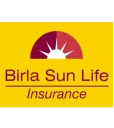
A life insurance policy has distinct tax advantages. The premiums you pay for the policy are tax-free under Section 80C up to a maximum limit of INR 1.5 lakhs. That is why insurance is a preferred mode of investment for many tax-payers who try and maximise their 80C contributions. What’s an added advantage is that the maturity or death benefit paid under the plan also qualifies for tax deduction. Yes, you heard it right! Not only do you get tax benefits on the premiums paid, the policy proceeds are also tax-free under Section 10 (10D). Policy proceeds are the benefits which you receive from your insurance policy. Moreover, there is no limit on the exemption allowed on policy benefits. The entire benefit received, whatever be the amount, would be tax-free. But is that all that you should know?
Though the policy benefits qualify for tax exemption under Section 10 (10D), there are some eligibility criteria which the policy should qualify on to get the tax exemption. These criteria are listed below –
If the policy is issued between 1st April 2003 and 31st March 2012
If the life insurance policy is issued after 1st April 2003 but on or before 31st March 2012, the premium for the policy should not be more than 20% of the sum assured. Only if the premium is up to 20% of the sum assured, the maturity or death benefit received under the plan, including sum assured and any bonus or additions declared, would be tax-free. If the premium of the plan is more than 20% of the sum assured, the entire benefit paid would be taxed.
For example, if the sum assured under the life insurance policy is INR 10 lakhs, the premium should not be more than INR 2 lakhs. If the premium is below the specified limit, the maturity or death benefit received would be completely tax-free. However, if the premium is INR 2.10 lakhs, the policy benefit would be taxable completely.
Exception to the rule
Even if the premium is more than 20% of the sum assured, if the insured dies during the policy tenure and a death benefit is paid, no tax would be applicable on the death benefit paid.
If the policy is issued on or after 1st April 2012
If the policy has been issued on or after 1st April, 2012, the maximum premium should not be more than 10% of the sum assured. Only if the premium is limited to 10% of the sum assured is the plan benefit allowed as tax-free under Section 10 (10D)
Like the same example, if the premium of the plan is up to INR 1 lakh, the plan benefit would be allowed as tax-free income. If the premium is INR 1.10 lakhs or anywhere above INR 1 lakh, the entire proceeds paid under the policy would be taxable.
Exception to the rule
Just like in the above-mentioned instance, even if the premium is more than10% of the sum assured, the death benefit paid would be completely tax-free.
Section 80U and 80DDB
If the life insured suffers from a severe disability as defined under Section 80U or has a disease specified in Section 80DDB, the tax-free limit on premium is 15% of the sum assured. So, for such individuals, the premium could be up to 15% of the sum assured for the plan benefits to qualify for exemption under Section 10 (10D).
In the example where the sum assured is INR 10 lakhs, the maximum premium should be up to INR 1.5 lakhs so that the benefits received are tax-free.
TDS on life insurance proceeds
There is also a concept of TDS being deducted from the benefits payable under a life insurance policy. According to Section 194DA of the Income Tax Act, life insurance policy benefits are subject to a TDS @ 2%. However, this TDS is applicable only if the policy proceeds are not exempted under Section 10 (10D). If the policy proceeds are exempted under 10 (10D), no TDS would be charged. Another exemption from the TDS rule is that if the policy proceeds are not exempted under Section 10(10D), but are below INR 1 lakh, no TDS would be applicable.
Example – A policy is issued after 1st April, 2012 with a sum assured of INR 50, 000. The premium is INR 6000. Since the premium is more than 10% of the sum assured, the sum assured of INR 50, 000 would not be exempted under Section 10(10D) if it is paid as a maturity benefit. However, TDS would not be applicable on INR 50, 000 because the benefit is below INR 1 lakh.
The rate of TDS increases to 20% if the policyholder does not submit his PAN to the insurance company.
So, don’t take your life insurance policy proceeds for granted when it comes to tax exemption. Know the rules of tax exemption to find out whether your policies would provide tax-free benefits or not.
Read more about taxation facts about your life insurance policies
Read more about tax benefits of life insurance policy
Read more about know more about the benefits of life insurance policies before buying one
Read more about TDS on life insurance policies.
Do you have more than 1 life insurance policy and wondering what tax benefit you would get? Check our our video to know more





























